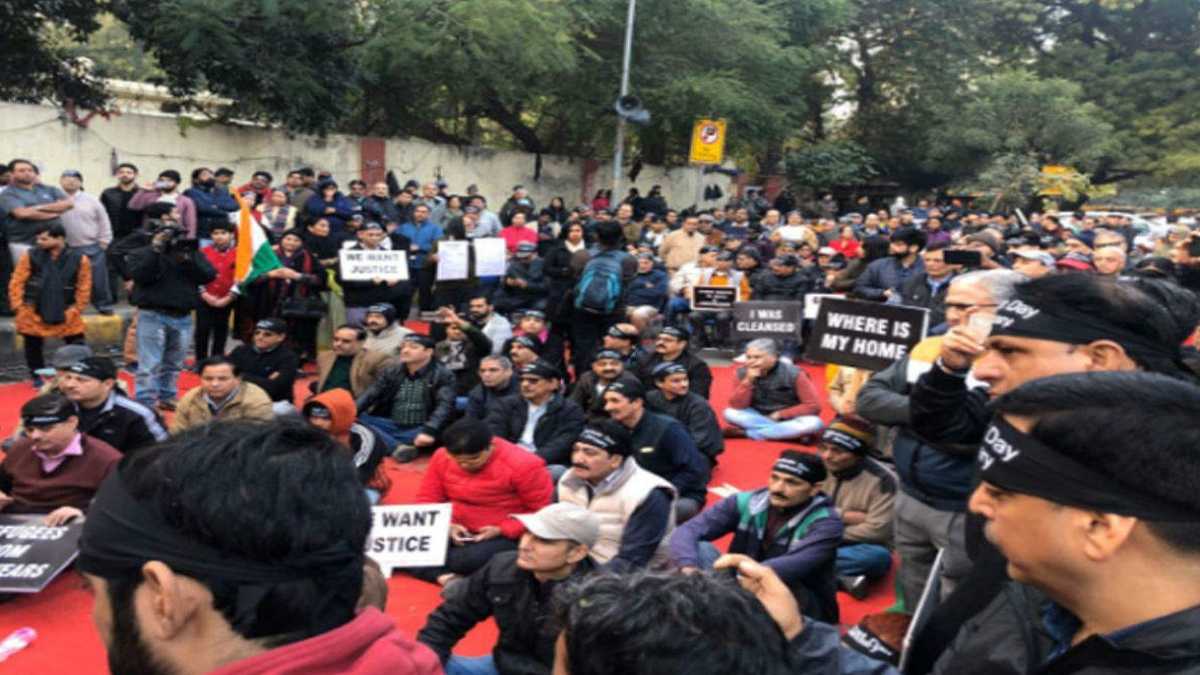Politics
The Plight of Kashmiri Pandits: Forgotten Exiles of the Valley

Kashmir, often considered the abode of Saraswati and known as Sharda Peeth, holds a rich cultural and historical heritage. It was in this scenic valley that students would take symbolic steps towards higher learning, denoting their aspirations. For centuries, Kashmir has been a center of Sanskrit literature, its origins deeply rooted in this land.
Rajatarangini, a historical tome written by Kalhana in the 12th century, highlights the great King Lalitaditya, whose kingdom stretched from the Caspian Sea to the Kaveri basin. The city of Srinagar itself was established by the mighty Ashoka the Great. Kashmiri monks played a pivotal role in spreading Mahayana Buddhism to regions across mid-Asia, China, and Japan. Patanjali, the influential sage, gifted humanity with his yog sutra, while Sarangadeva is hailed as the father of Hindustani and Carnatic music. Acharya Abhinav Gupta, a revered scholar, wrote numerous literary classics including the renowned Abhinav Bharti. His principles of RAS are taught in universities worldwide. It is disheartening to see such vital slices of history omitted from our textbooks.
Kashmiri Pandits, a community with roots spanning over five thousand years, have faced immense adversity. The forced exile of the Kashmiri Pandits in 1990, aimed at ethnically cleansing them, remains a dark chapter in Kashmir’s history. The aboriginal community has been subjected to continuous persecution and genocide over the centuries, even during the enlightened post-independence era of India.
The present plight of the exiled community reflects a crisis not only for them but for the entire Kashmiri society and India’s values. Fear and terror gripped the Kashmiri Pandits from the late 1980s after the killings of prominent community members, reminiscent of the persecution they experienced under Afghan rulers in the 18th century.
There is now a consensus across the political spectrum in India and Jammu and Kashmir to reverse the exile of Kashmiri Pandits. Prime Minister Modi’s promises and his vision for a “new Jammu and Kashmir and new Ladakh” have fueled the hopes of the native population living as refugees in their own country, aspiring to return to their homeland.
However, nearly five years since the abrogation of Article 370 and 35-A in August 2019, concerns are rising that the plight of the native exiled Kashmiri population is being gradually forgotten. While many express sympathy for their suffering, there seems to be a lack of concrete action by the Modi-2.0 government and the Jammu and Kashmir Union Territory Government.












